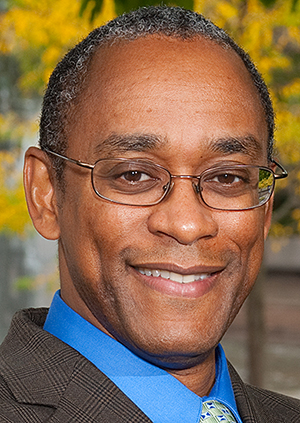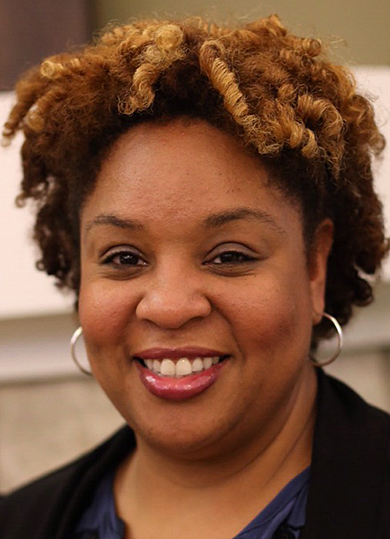October 5, 2016
2016 Cancer Culture and Community Colloquium introduces medical humanities
 Keith Wailoo
Keith Wailoo
Download image
WEST LAFAYETTE, Ind. — The Purdue 2016 Cancer Culture and Community Colloquium on Nov. 14 will focus on race and cancer while celebrating Purdue's new medical humanities program.
The keynote event, "How Cancer Crossed the Color Line," is 7:30 p.m. in Stewart Center's Fowler Hall. The event will feature a performance by the Purdue Black Voices of Inspiration and remarks by Tamika Felder, survivor and cancer advocate. The keynote presentation will be by Keith Wailoo, the Townsend Martin Professor of History and Public Affairs at Princeton University.
All Cancer Culture and Community Colloquium events are free and open to the public. The event is sponsored by Oncological Sciences Center, College of Liberal Arts, Purdue Policy Research Institute, Purdue Libraries, Department of History, Black Voices of Inspiration, Department of Anthropology, Office of the Provost, Department of English, Purdue Center for Cancer Research, and Office of Public Affairs.
"More than Skin Deep: Introducing Medical Humanities at Purdue," which is 9 a.m. to 5 p.m. in Stewart Center, Room 306, will focus on areas related to medical humanities and introduce the new certificate at Purdue. The certificate will equal 18 credit hours from both social science and humanities course offerings.
"In an age of remarkable advances in medical science, the humanities are more important than ever to understanding health, illness, mortality and well-being," said Wendy Kline, the Dema G. Seelye Professor in the History of Medicine at Purdue. "As medicine extends human life and physical capability, it brings with it difficult ethical questions about the alteration of the body, the unequal distribution of care, aging, disability and the end of life. For this reason, leading physicians and institutions worldwide have recently called for the urgent return of the humanities to medical education and practice."
 Tamika Felder
Tamika Felder
Download image
This movement, the medical humanities, emphasizes the human experience of illness and suffering through the study of history, literature, philosophy, religion, art, anthropology and other humanities disciplines, Kline said.
"Beyond the training of future health practitioners, these approaches offer all of us a deeper understanding of the lives we lead, the values informing our medical decisions and the nature of our commitment to collective health and well-being," Kline said.
The schedule for "More than Skin Deep: Introducing Medical Humanities at Purdue" is:
* 9 a.m. Welcome and Opening Remarks, David A. Reingold, the Justin S. Morrill Dean of Liberal Arts at Purdue, and Kline.
* 9:30-10:20 a.m. "Pills, Power and Politics," Dominque Tobell, associate professor and director of the History of Medicine Program at the University of Minnesota.
* 10:30-11:20 a.m. "Reproductive Health and Global Politics," Marcia C. Inhorn, the William K. Lanman, Jr. Professor of Anthropology and International Affairs at Yale University.
* 11:30-12:20 p.m. "Sources at our Fingertips: Purdue's Psychoactive Substance Research Collection," Stephanie Schmitz, the France A. Cordova Archivist from the Psychoactive Substances Research Collection at Purdue; and David E. Nichols, professor emeritus of pharmacology at Purdue; and Lauren Haslem, a Purdue graduate student from the Department of History.
* 12:30-1:20 p.m. Lunch and Panel Discussion on Medical Humanities in Teaching and Research. The facilitator is Emily Beckman, assistant clinical professor and director of Medical Humanities and Health Studies at IUPUI.
* 1:30-2:20 p.m. "Neuroscience, Women and the Criminal Justice System," Valerie Hardcastle, professor of philosophy, psychology and psychiatry and behavioral neuroscience at the University of Cincinnati.
* 2:30-3:20 p.m. "Building Bridges with Medical Humanities," Jonathan Beever, assistant professor and director of the Theoretical and Applied Ethics Certificate Program at the University of Central Florida; and William Schneider, professor of history and adjunct professor of medical and molecular genetics at IUPUI.
* 3:30-4:20 p.m. "My Second Act: Making my Survivorship Count," Tamika Felder, TV producer and cancer advocate.
Writer: Cat Dillon, dillon16@purdue.edu
Media contact: Howard Hewitt, 765-494-9541, hhewitt@purdue.edu
Source: Wendy Kline, wkline@purdue.edu

